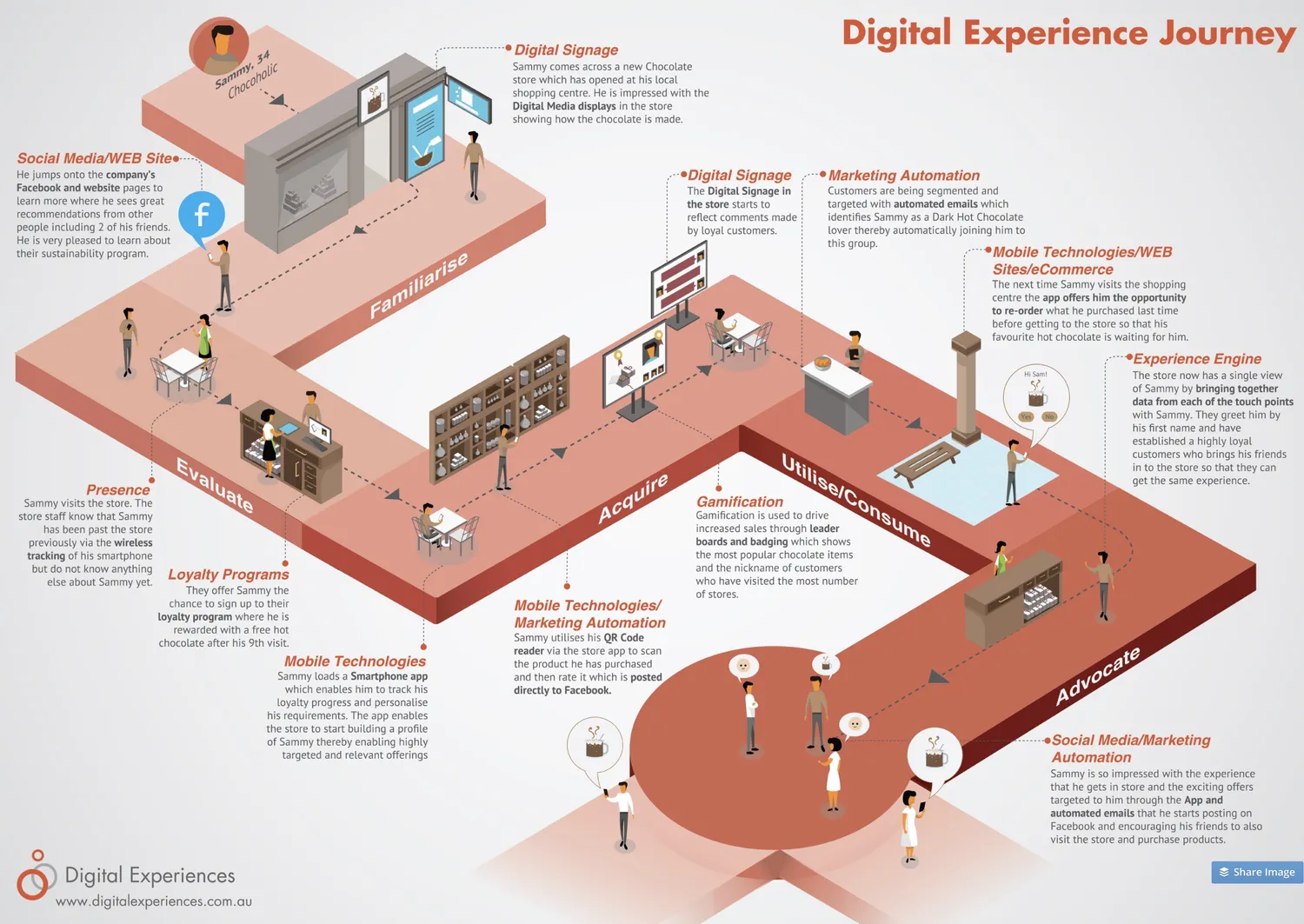Customer Journey Map
What is a Customer Journey Map?

Definition:
A “Customer Journey Map” is a visual representation or illustration that outlines the entire experience a customer has with a product, service, or brand over time. It captures the various touchpoints and interactions a customer has from the initial awareness stage through the purchase process and post-purchase engagement. The purpose of a customer journey map is to understand and optimize the customer’s experience by identifying pain points, opportunities for improvement, and moments of delight at each stage of the journey.
Analogy:
Think of a Customer Journey Map as a roadmap for businesses. Similar to a roadmap guiding travelers on a journey, a customer journey map guides businesses in understanding and enhancing the customer experience. It highlights the key stops, challenges, and highlights along the way.
Further Description:
A Customer Journey Map typically includes multiple components:
- Customer Persona: The map often begins with the creation of customer personas, representing different segments of the target audience. This helps businesses understand the diverse needs, preferences, and behaviors of their customers.
- Stages of the Journey: The journey is divided into stages, such as awareness, consideration, purchase, onboarding, and post-purchase. Each stage represents a phase in the customer’s interaction with the business.
- Touchpoints: Touchpoints are the various interactions a customer has with the business, both online and offline. These can include website visits, social media engagement, customer service calls, and product usage.
- Emotional States: Customer journey maps often include an assessment of the customer’s emotional state at each touchpoint. This provides insights into how customers feel during different interactions, whether frustrated, satisfied, or delighted.
- Pain Points and Opportunities: Identifying pain points helps businesses address areas of frustration or dissatisfaction while recognizing opportunities allows for the enhancement of positive experiences.
Why is a Customer Journey Map Important?
A Customer Journey Map is essential for several reasons:
- Enhanced Customer Experience: By understanding the customer’s perspective at each stage, businesses can tailor their offerings and interactions to meet customer expectations, leading to an improved overall experience.
- Identification of Pain Points: Mapping the customer journey helps identify pain points or areas where customers may face challenges, allowing businesses to address these issues and enhance satisfaction.
- Opportunity for Innovation: The map highlights opportunities for innovation and improvement, enabling businesses to create new features, services, or processes that better align with customer needs.
- Consistent Messaging: Businesses can ensure consistent and cohesive messaging across different touchpoints, creating a seamless and unified brand experience.
- Informed Decision-Making: Customer journey maps provide data-driven insights that inform strategic decisions, helping businesses allocate resources effectively and prioritize initiatives that impact the customer experience.
Examples and Usage:
- E-commerce Purchase Journey: A customer journey map for an online retailer might include stages such as browsing, product selection, checkout, and post-purchase support. Touchpoints could include the website, mobile app, and customer service interactions.
- Subscription Service Onboarding: For a subscription-based service, the customer journey might involve sign-up, onboarding, monthly usage, and potential renewal. Touchpoints could include the sign-up process, email communication, and usage of the service.
- In-Store Retail Experience: A customer journey map for a brick-and-mortar store might include stages like entering the store, product selection, checkout, and post-purchase follow-up. Touchpoints could include store layout, staff interactions, and loyalty programs.
In summary, a Customer Journey Map is a valuable tool for businesses to gain insights into the customer experience, identify areas for improvement, and create a more customer-centric approach.
Key Takeaways:
- A Customer Journey Map is a visual representation of a customer’s experience with a product, service, or brand over time.
- It includes customer personas, stages of the journey, touchpoints, emotional states, and identifies pain points and opportunities.
- Customer journey maps enhance the overall customer experience, inform decision-making, and provide opportunities for innovation.
- Examples include e-commerce purchase journeys, subscription service onboarding, and in-store retail experiences.




